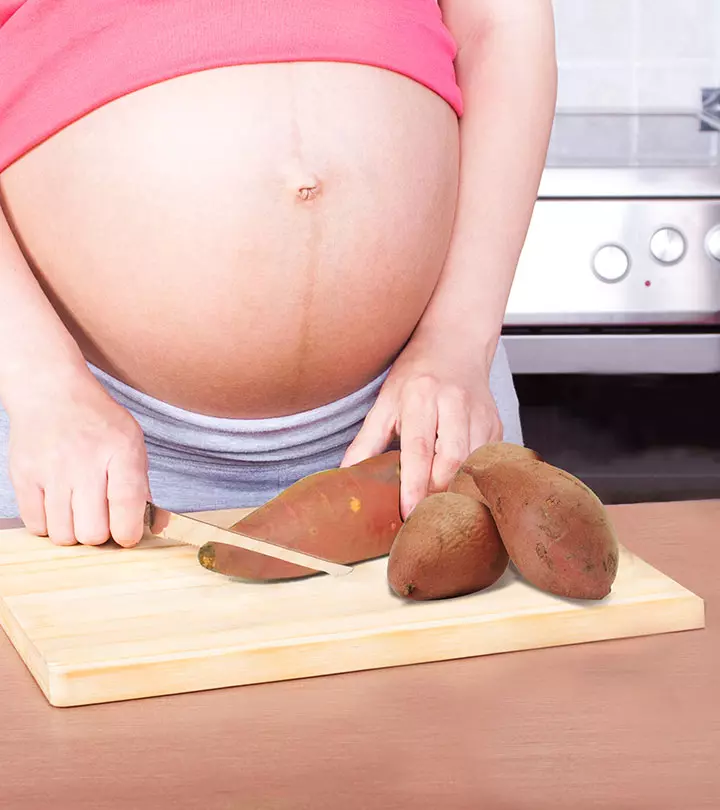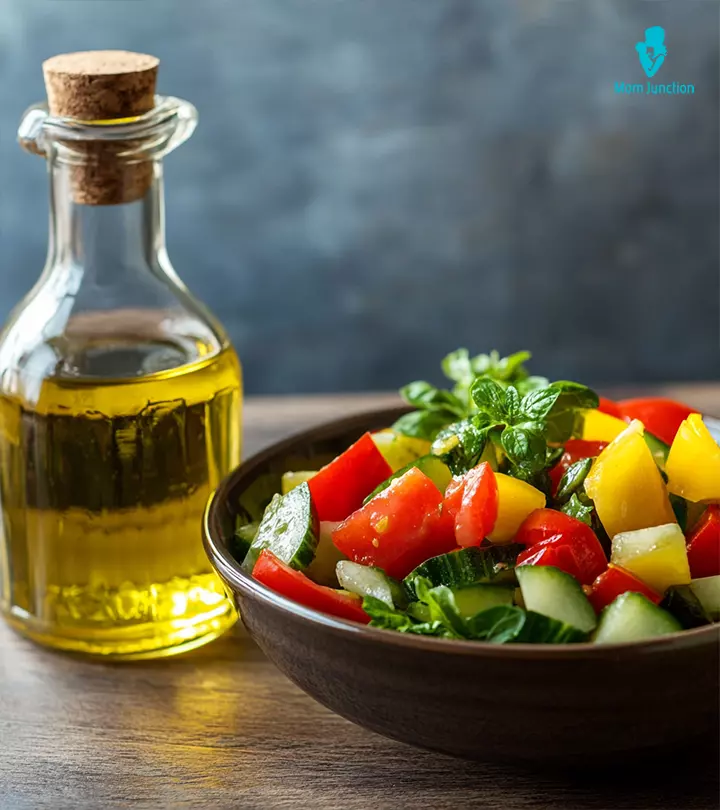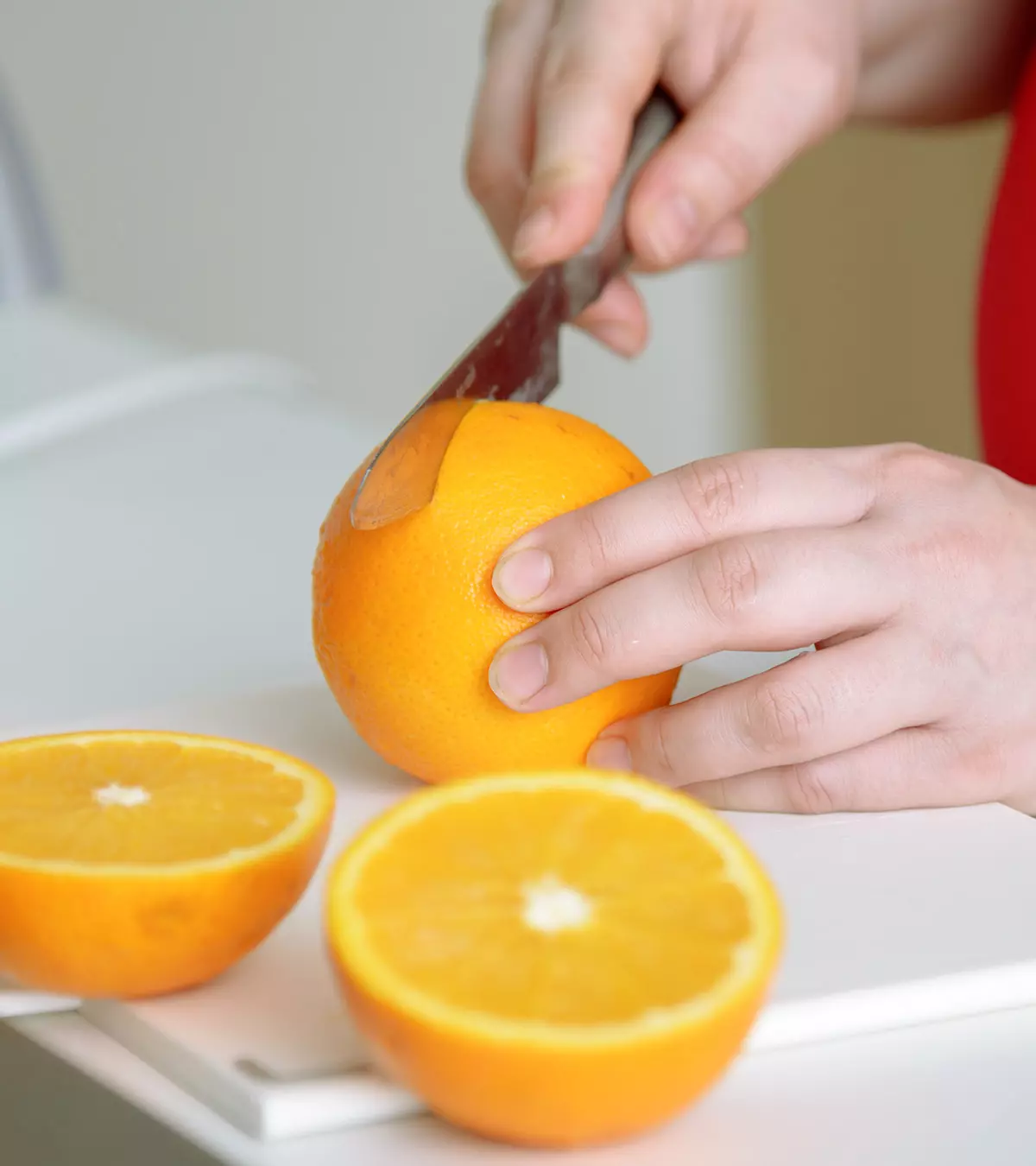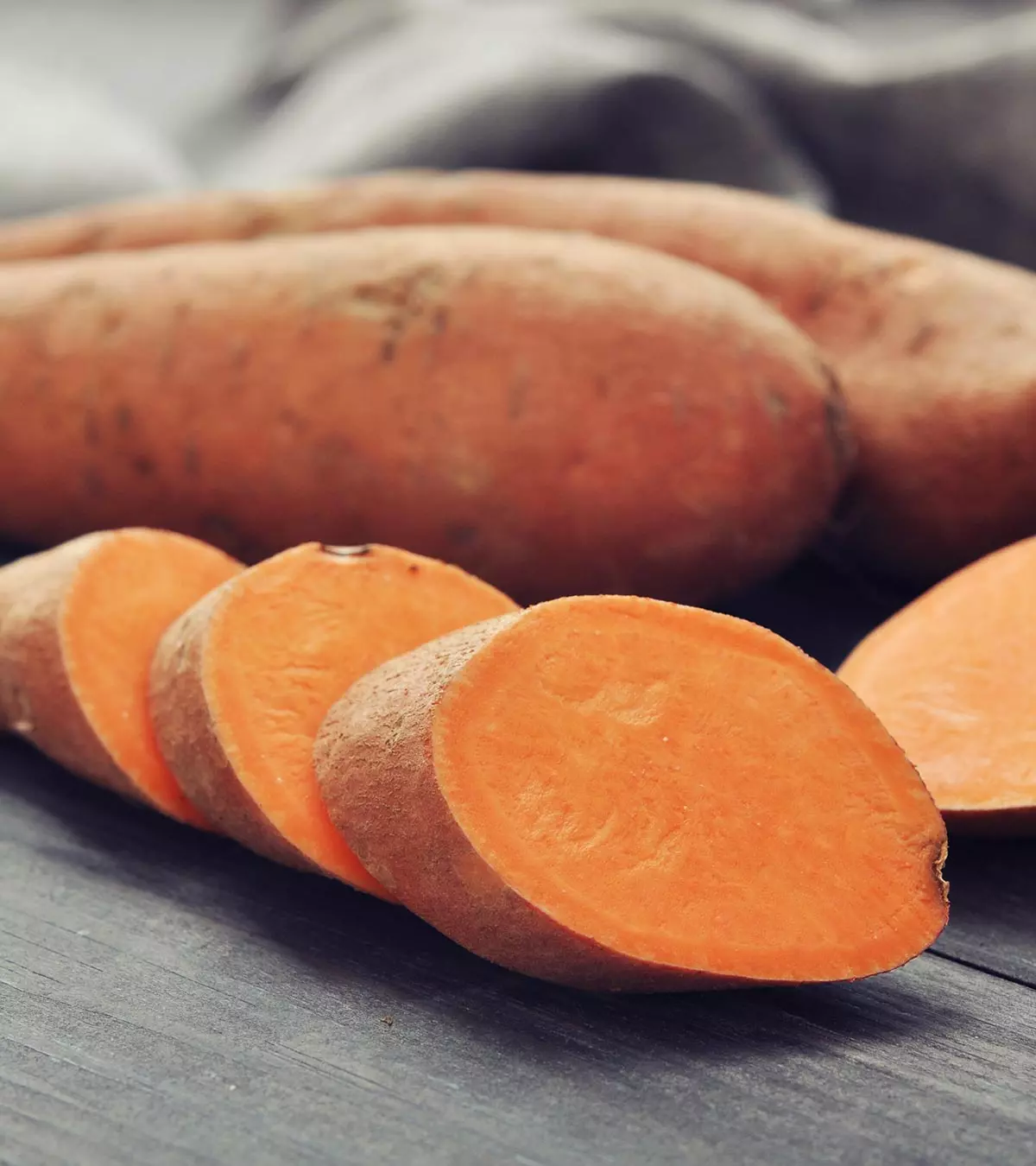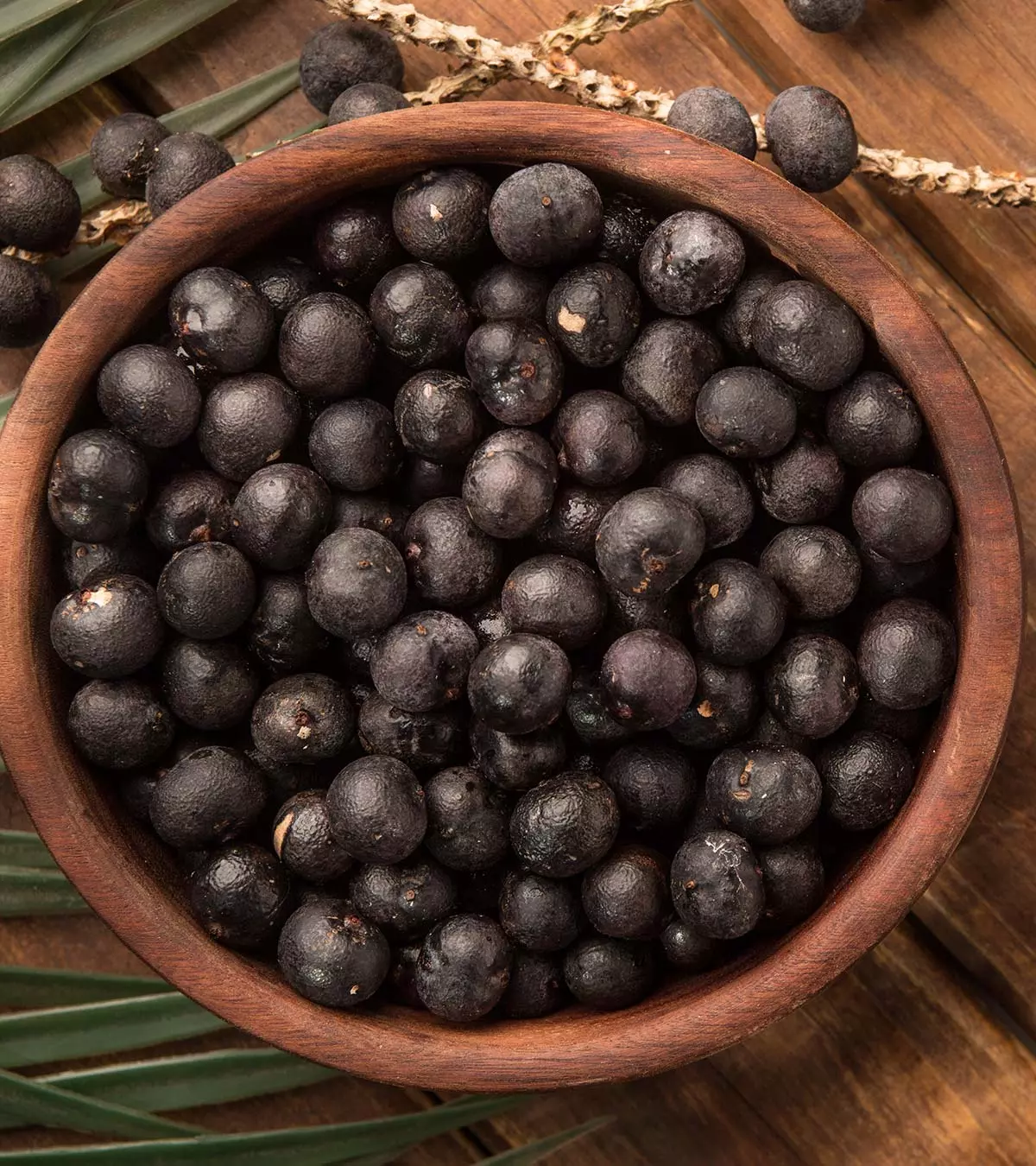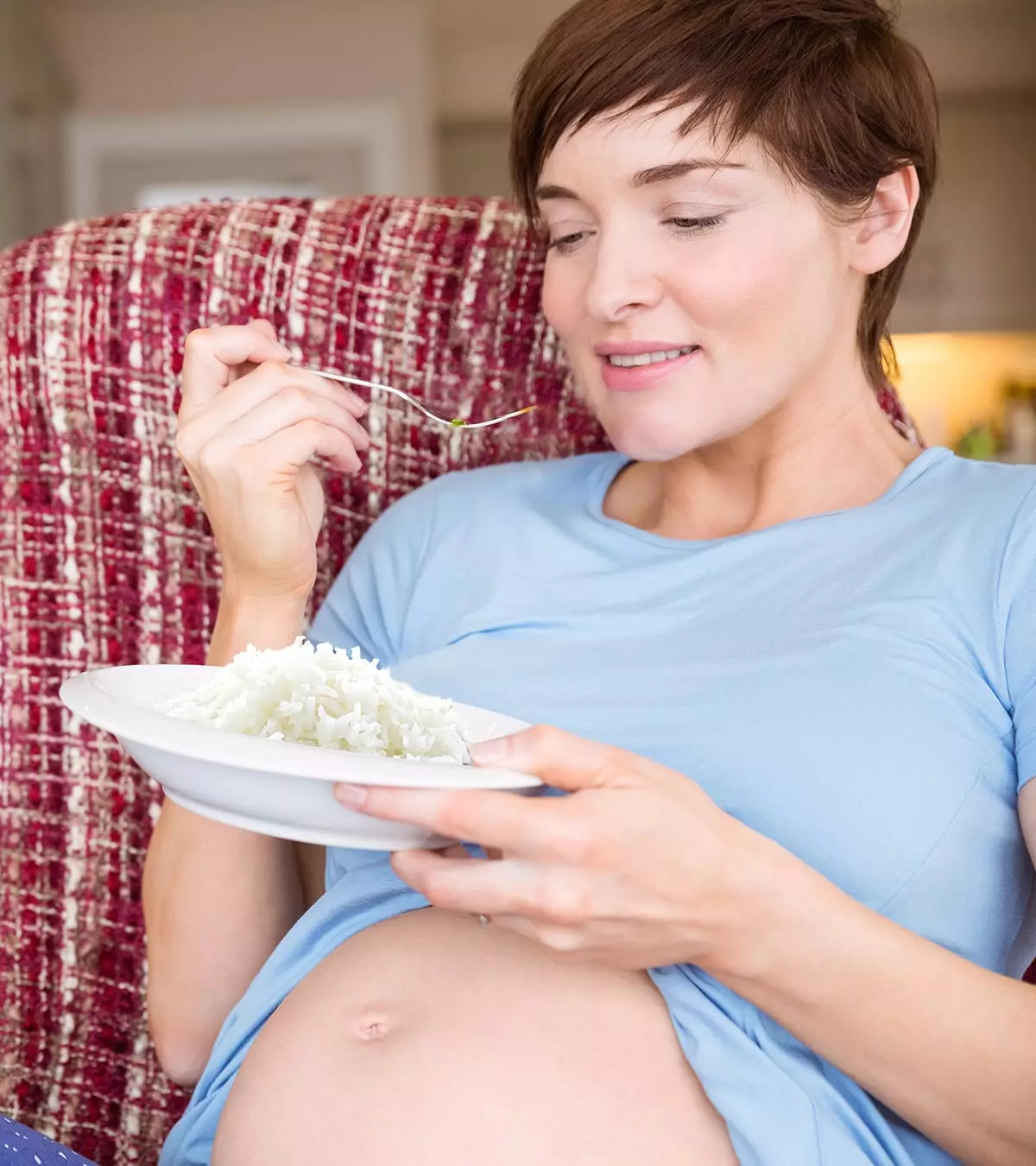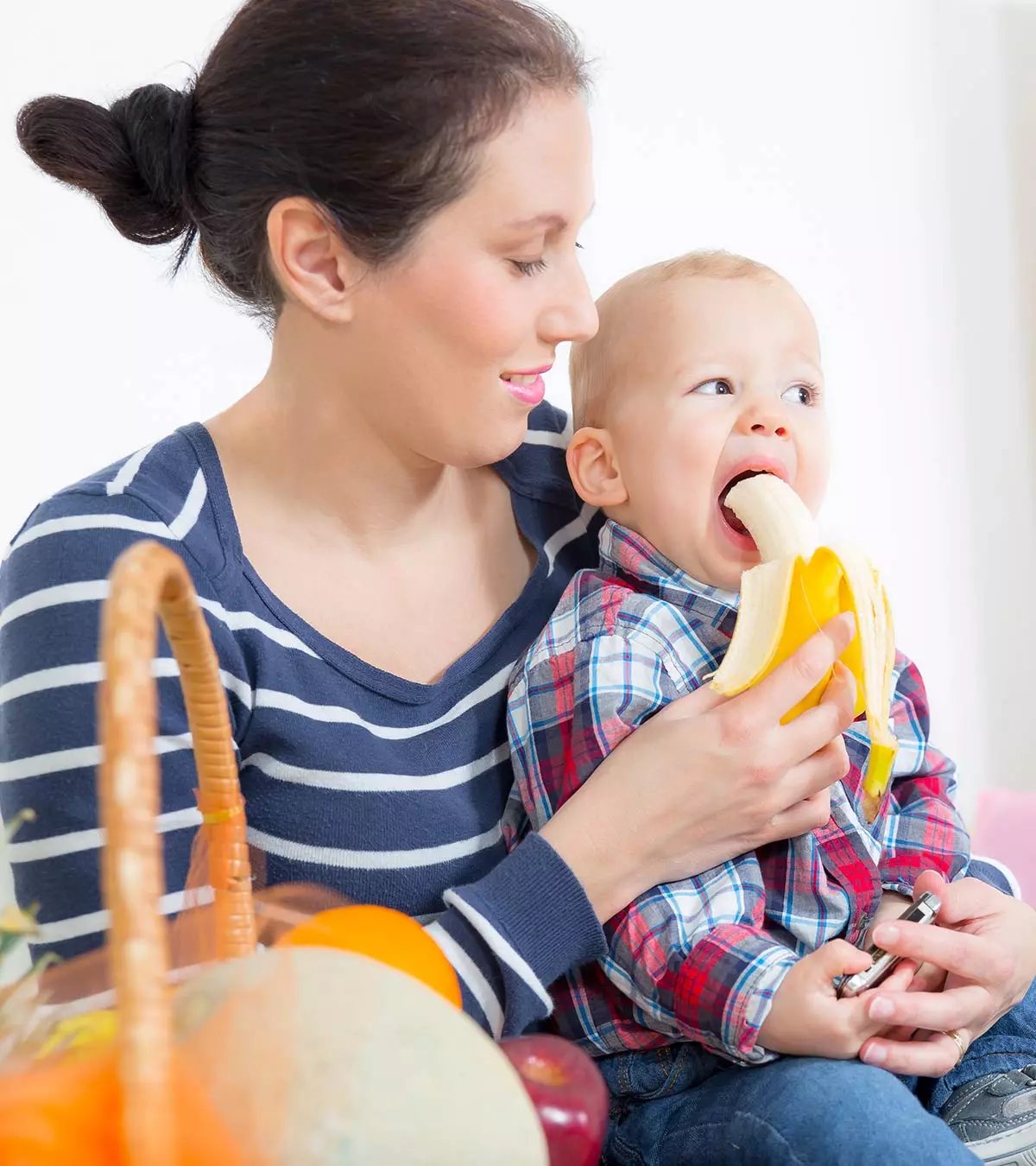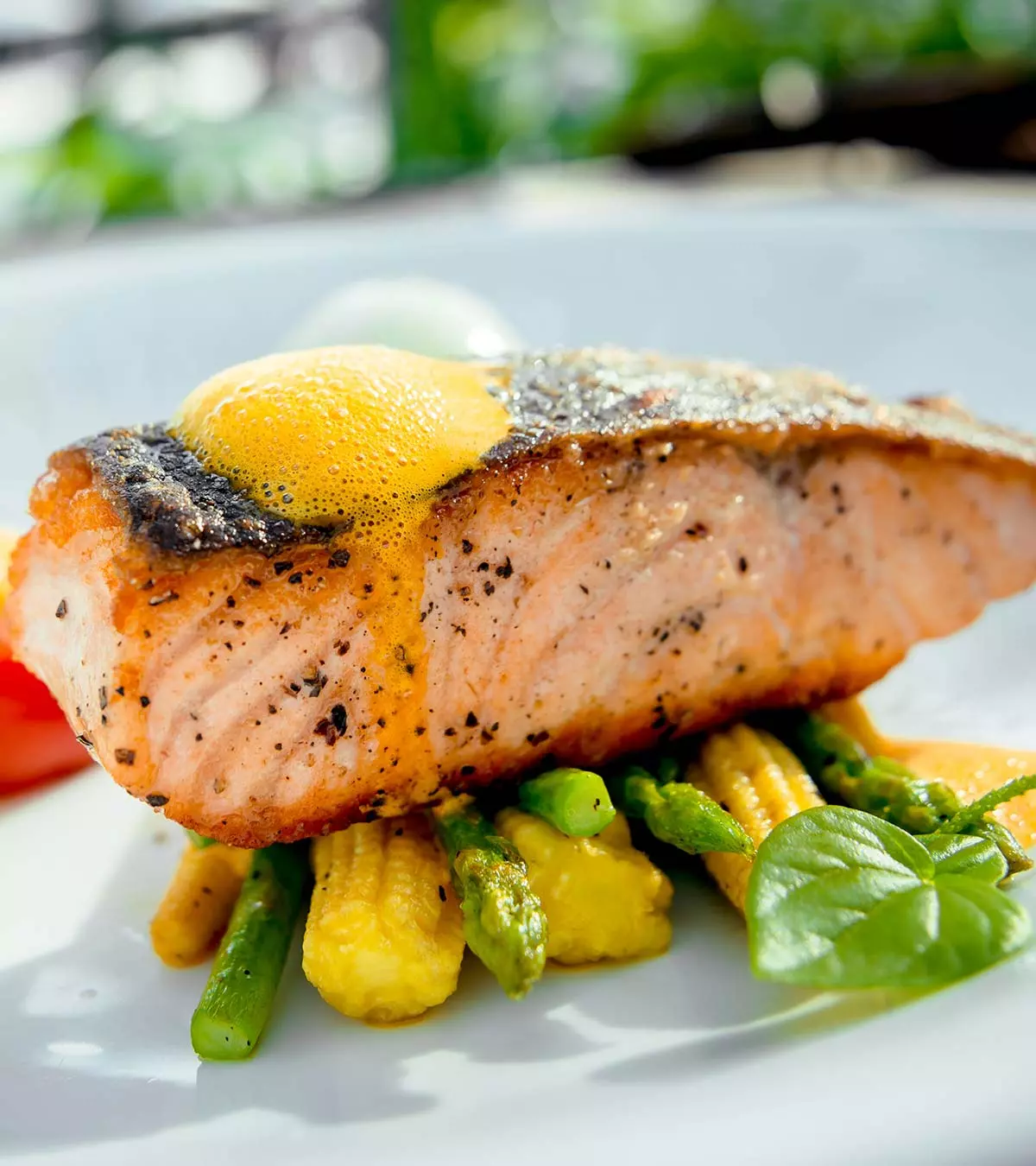
Image: Shutterstock
Eating halibut during pregnancy or not could be a question popping in your mind. You should keep an eye on everything you eat during pregnancy since some contents can affect the fetus. Fish is a great source of omega-3 fatty acids, and two to three servings of various fish are recommended for pregnant women. However, health organizations also recommend opting for fishes with low mercury content and avoiding highly toxic fishes. Continue reading to know the effects and safety of eating halibut during pregnancy if you plan to include it in your diet.
Key Pointers
- Halibut is rich in protein, selenium, phosphorus, niacin, and omega-3 fatty acids and is also low in fat and sodium.
- Pregnant women can safely consume up to 4 ounces of halibut per week.
- Halibut may contain moderate amounts of mercury as well as other pollutants such as polychlorinated biphenyls and dioxins.
- Including low-mercury fish like halibut as part of a balanced diet during pregnancy can be beneficial.
What Is Halibut?
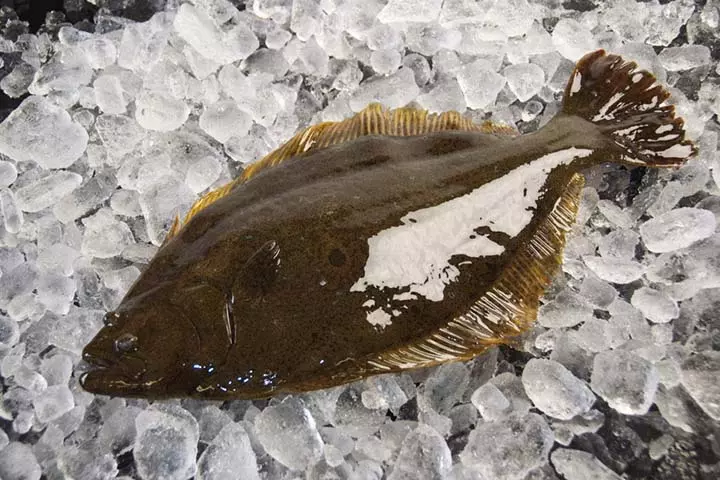
A halibut is a type of flatfish and belongs to the family Pleuronectidae. It is native to the northern Pacific and Atlantic waters. Halibut is grilled, fried, or steamed for consumption. It is a widely eaten fish in most parts of the world. The Pacific halibut has a sweet and mild taste. It has a characteristic snow white color when cooked.
Halibut is an excellent source of protein, selenium, phosphorus, niacin, and omega-3 fatty acids. It is also healthy as it contains low amounts of sodium and fat. From 100 gm of raw Pacific halibut, you can get approximately 91 calories, with zero amounts of carbohydrates and sugars. The same amount can provide you with protein (19g), total fat (1.3g), sodium (68mg), and selenium (45.60mcg) in approximate amounts (1).
Is It Safe To Eat Halibut During Pregnancy?
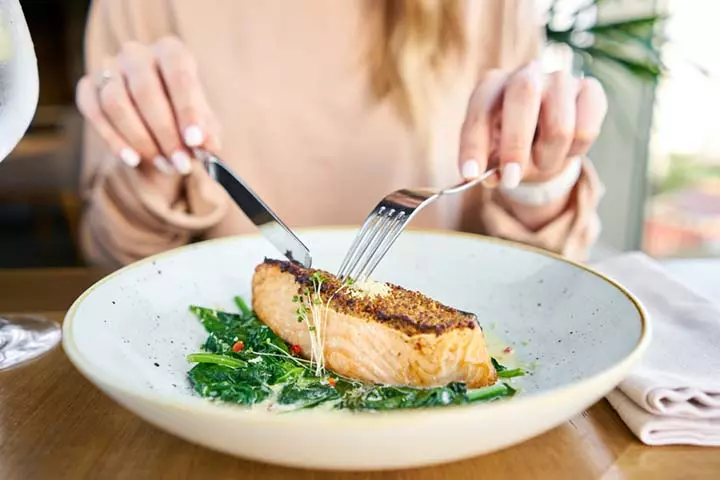
Yes! It is safe to eat cooked halibut while you are pregnant, but moderation is the key. Seafood contains mercury, and it is probably the biggest concern with fish consumption during pregnancy.
Most adults can consume some amounts of mercury without experiencing any health problems. But, an excess of mercury can cause problems for fetal health. Therefore, if you are pregnant, limit your halibut consumption to 4 ounces or about 113g per week (2).
Eating Halibut During Pregnancy

If you eat fish, continue to eat a few servings of this nutritious food source during your pregnancy. Ask your doctor about your seafood serving size during pregnancy. Accordingly, adjust your serving of halibut per week. It is best to limit your intake of halibut when pregnant to a few servings every month. Add other varieties of fish in your diet that have low mercury concentrates (2).
 Quick tip
Quick tipSide Effects Of Eating Halibut During Pregnancy
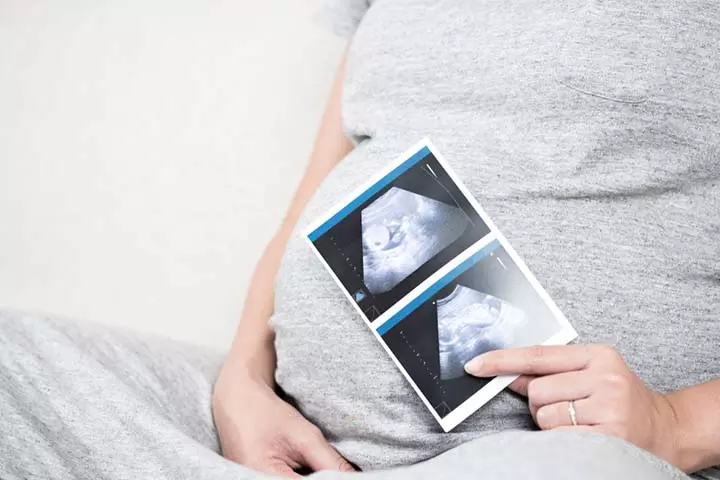
- Halibut contains some amount of mercury, which can be harmful to fetal health. Pacific halibut from the Alaskan and Canadian region, Atlantic halibut, and the variety found in Greenland contains moderate amounts of mercury. Pacific halibut from the California region contains mercury in elevated amounts (3). Halibut can easily contain mercury levels of 1.52 parts per million (PPM) (4). If you ingest high levels of mercury during your pregnancy, it can cause developmental delays, seizures, vision problems, and more in babies (5).
- Halibut can also contain pollutants like polychlorinated biphenyls (PCBs) and dioxins. PCBs are man made toxins and used in industrial activities. PCBs can contaminate sources of water including seas. These can get into fish and other sea creatures (6). Dioxins are chemicals that get into the environment through industrial emissions, burning of trash and fuels and chlorine bleach processes. These toxins reach humans through the food chain. These chemicals accumulate in the fatty animal tissues such as fish and other seafood. Dioxins can cause a lot of damage in the body. It affects development, reproductive processes, immunity and can also cause hormonal problems and cancer (7). This toxin is in some varieties of halibut as well (8).
Eating Fish During Pregnancy
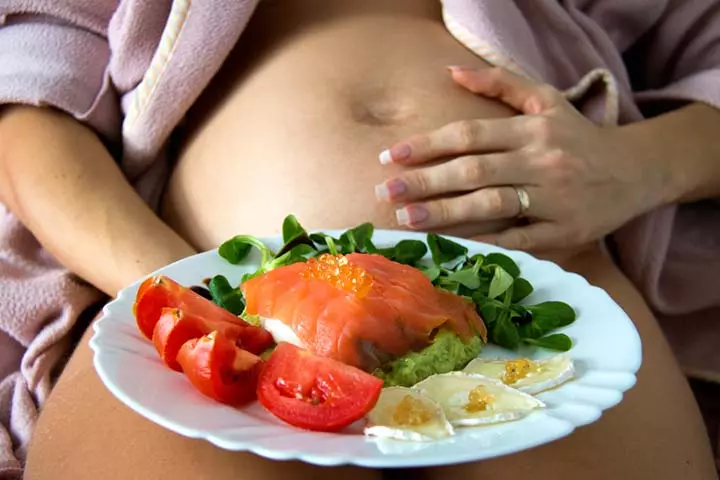
- Fish is an excellent food source for omega-3s, proteins, and numerous vitamins and minerals. These nutrients are essential for good maternal health and fetal development. But during pregnancy, It is important to resist your cravings and carefully regulate your halibut and fish consumption. It is necessary due to mercury present in most seafood (9). The same applies if you are planning your pregnancy or breastfeeding your child.
 Quick fact
Quick fact- As per FDA guidelines, pregnant women can eat up to 8-12 ounces or approximately 340 gm of seafood per week during pregnancy (9). It is best to stick to fish with lowest mercury levels, such as salmon, anchovies, cod, tilapia, and catfish. Avoid swordfish, king mackerel, shark, and tilefish. Also, limit your intake of white tuna while pregnant (10).
- If you eat fish found in your local water bodies, check with your city’s health department about the level of mercury in the water.
- If you eat a lot of fish, it is better to reduce your servings even when you are planning your pregnancy. Over a period mercury can collect in the blood. If mercury levels in your blood are high, it may take up to a year before it reduces significantly. To make it possible, you may need to stop eating mercury completely. So, if you eat seafood, stick to fish and shellfish with minimum mercury concentrates.
- Pregnant women need a lot of omega-3 fats in their diet. Omega-3 fatty acids are essential for optimum neurodevelopment of the fetus. The primary source of two main active forms of omega-3 fats (eicosapentaenoic acid and docosahexaenoic acid) is seafood. Omega-3 fats help with fetal eye and brain growth. Eating food sources with omega-3 fatty acids during pregnancy can also protect women from perinatal depression and provide a host of benefits to fetal health. If you don’t eat fish or restrict your intake of fish during pregnancy, you must eat other safe sources of these essential nutrients. Omega-3s found in flaxseed is at par with its marine sources regarding quantity. But it contains shorter omega 3s than the longer chain omega-3s found in marine food sources. Other sources of omega-3 fatty acids are chia seeds, beans, and walnuts. So, there are plenty of options for you in terms of food sources of omega-3 fatty acids. So, don’t miss out on obtaining it if you want to avoid eating halibut or other fish during pregnancy (11) (12).
- You can also consume omega-3 fish oil during pregnancy to supplement your need for omega-3 fats. Ask your doctor for a safe brand of fish oil that you can use while pregnant and breastfeeding.
- If you are pregnant, it is safe for you to eat limited servings of halibut. Strive for balanced meals and do not rely on only marine food sources to obtain essential nutrients for you and your baby.
Frequently Asked Questions
1. Is halibut healthier than salmon?
Although both halibut and salmon are among the good choices of fish to eat during pregnancy; salmon has higher levels of the beneficial omega-3 and lower levels of mercury than halibut, excess of which may be harmful to the fetus (4) (13) (14).
2. Can I eat raw halibut when pregnant?
No, you should not eat any raw fish, including sushi, during pregnancy as it may contain harmful toxins, bacteria, and parasites (15).
3. How to cook halibut fish during pregnancy?
It is recommended to cook all seafood to 145°F to ensure it is thoroughly cooked. A thoroughly cooked fish appears flaky (16).
Eating halibut during pregnancy in moderate amounts is considered safe. The fish is a good source of omega-3 fatty acid, an essential nutrient for fetal brain development. However, certain varieties of halibut may be high in mercury, and consuming them frequently or in large quantities may be harmful pose harm to the fetus and even maternal health. Halibut in limited amounts and other fish may be included in a balanced diet for a pregnant woman to get optimal nutrition. Discuss with your doctor to know the serving size to avoid complications.
Infographic: Caution While Eating Fish During Pregnancy
Fish is a rich source of omega-3 fatty acids. However, several potential risks associated with their consumption can put you and your baby at risk. Therefore, before you buy or consume any variety of fish, including Halibut, when pregnant, be mindful of the safety pointers in the infographic below.

Illustration: Momjunction Design Team
Illustration: Halibut During pregnancy: Is It Safe To Include In Your Diet

Image: Stable Diffusion/MomJunction Design Team
References
- Fish, raw, Atlantic, and Pacific halibut.
https://www.nutritionvalue.org/Fish%2C_raw%2C_Atlantic_and_Pacific%2C_halibut_nutritional_value.html?size=100+g - If You’re Pregnant, Eat Fish But NOT All, Says the FDA and EPA.
https://www.mcleodhealth.org/blog/if-youre-pregnant-eat-fish-but-not-all-says-the-fda-and-epa/ - HALIBUT.
https://www.edf.org/issue/sustainable-fishing?referrer=seafoodselector - Mercury Levels in Commercial Fish and Shellfish (1990-2012).
https://www.fda.gov/food/environmental-contaminants-food/mercury-levels-commercial-fish-and-shellfish-1990-2012 - Methylmercury in Fish.
https://mothertobaby.org/fact-sheets/methylmercury-pregnancy/pdf/ - PCBs in fish and shellfish.
https://www.edf.org/issue/sustainable-fishing?referrer=seafoodselector - Learn about Dioxin.
https://www.epa.gov/dioxin/learn-about-dioxin - Anja Luth et al.; (2018); Studies on the influence of sampling on the levels of dioxins and PCB in fish.
https://www.sciencedirect.com/science/article/abs/pii/S0045653518316540 - Advice about Eating Fish.
https://www.fda.gov/food/consumers/advice-about-eating-fish - Fish & Pregnancy: What is Safe to Eat?
https://www.healthychildren.org/English/ages-stages/prenatal/Pages/Fish-Pregnancy-What-is-Safe-to-Eat.aspx - Omega-3 Fish Oil and Pregnancy.
https://americanpregnancy.org/healthy-pregnancy/pregnancy-health-wellness/omega-3-fish-oil-and-pregnancy/#:~:text=Omega%2D3%20fatty%20acids%20have - Omega-3 Fatty Acids and Plant-Based Diets.
https://www.pcrm.org/good-nutrition/nutrition-information/omega-3 - Omega-3 Fatty Acids: An Essential Contribution;
https://nutritionsource.hsph.harvard.edu/what-should-you-eat/fats-and-cholesterol/types-of-fat/omega-3-fats/ - Mercury in fish;
https://www.betterhealth.vic.gov.au/health/healthyliving/mercury-in-fish#pregnant-women-should-limit-the-amount-of-fish-they-eat-over-time - Can I eat sushi while I’m pregnant?
https://www.acog.org/womens-health/experts-and-stories/ask-acog/can-i-eat-sushi-while-im-pregnant - Safe fish to eat during pregnancy;
https://www.med.umich.edu/1libr/Gyn/WHP/EatSafeFish.pdf
Community Experiences
Join the conversation and become a part of our nurturing community! Share your stories, experiences, and insights to connect with fellow parents.
Read full bio of Reda Elmardi
Read full bio of Ria Saha
Read full bio of Swati Patwal
Read full bio of Lorraine Teron










